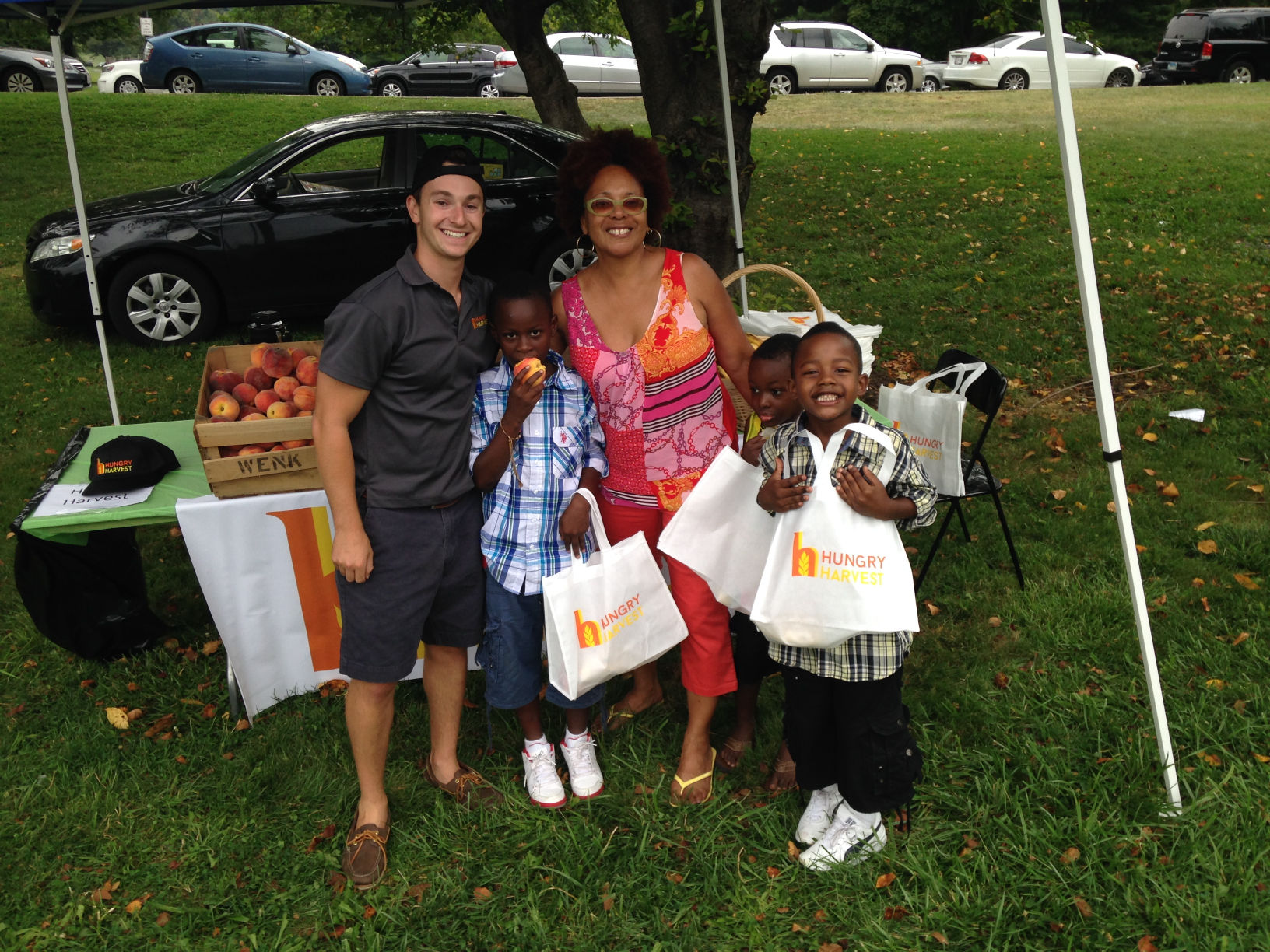
Hungry Harvest
Evan Lutz spent his first summer out of college living his dream: saving 28,000 pounds of produce from going to waste.
This May, the 2014 university graduate, along with business partner and 2014 university alumnus Ben Simon, started Hungry Harvest, a for-profit business that recovers farmers’ discarded produce to resell and to donate to needy families.
“Evan is an extremely hard worker,” said Eli Davis, a junior journalism major and friend of Lutz’s. “It’s always hard to build a startup, but no one was surprised to see how rapidly Hungry Harvest grew.”
Students might recognize the idea of food recovery from last semester’s debut of the Recovered Food Community-Supported Agriculture initiative, or CSA, which sold recovered produce on campus every week and donated produce to needy families.
Lutz, former program manager of CSA, left the project to create his own business after seeing how successful CSA was among students.
“People came back week after week,” Lutz said.
Lutz and Simon, who also worked with CSA, transformed their passion for recovering food and helping needy families into a limited liability company in May.
Lutz said that unlike nonprofit organizations, which need to split their time between finding funding and running their projects, for-profit Hungry Harvest can focus on its mission.
Hungry Harvest will provide financial backing for its own operations and the CSA, and will donate surplus produce for sale at the CSA tables.
“As we make money, we are also making an impact,” Lutz said. “We can focus all our time on the goal.”
Over the summer, Lutz and Simon hired three full-time employees to advertise for Hungry Harvest, with plans to grow. Lutz and Simon, however, have yet to collect a salary of their own.
“We’re not paying ourselves until we have the funds to,” Lutz said. “We’re basically working for free now.”
Customers can sign up online to receive either a half-share of produce (5-7 pounds) for $10 a week, or a full share (10-12 pounds)for $17 a week, for 10 weeks. Hungry Harvest currently delivers produce every Sunday to 140 paying customers, 10 of whom are students.
Lutz said Hungry Harvest expects to see more student customers after they advertise with flyers on the campus and on social media. The team will also speak to classes about Hungry Harvest and appeal to faculty and staff by offering deliveries right to their desks.
While Hungry Harvest is not the only food delivery service in the area, Lutz said he is not worried about competition.
“Once we get big enough, we are going to make them nervous,” Lutz said. “We’re going to show them their model is out of date.”
Hungry Harvest recovered the 28,000 pounds of produce in nine weeks, selling half to customers and donating half to needy families through shelters and soup kitchens, Lutz said.
The Hungry Harvest team, along with many volunteers, has been packing the recovered produce for delivery in a church in Silver Spring, but Lutz said the business is looking to rent a warehouse in coming months.
In previous interviews with The Diamondback, some students and faculty expressed concern over the quality of the produce and health risks of recovered produce.
Lutz, however, said the CSA has checked in with the county and state health departments. About 95 percent of the produce that is thrown away is completely fine to use, Lutz said.
While his parents had reservations about Hungry Harvest, Lutz said they are behind him and his goal to recover food on a global scale.
“The vision is to have a system set up all over the country where there is no food wasted,” Lutz said. “This is exactly what I want to be doing with my life.”



